Is the Future of Work digital?
The digital shift sparked by COVID-19 has brought a whole host of questions and concerns about the future of our working lives to the fore. Questions such as: ‘Will all companies go digital?’, ‘What remains of the office?’, ‘Will our work and private lives blur into indistinction?’, ‘Is working from home exacerbating gender inequalities?’ and, arguably most importantly: ‘Is there any going back?’
We have conducted a survey to answer a few of these pertinent questions.

About the Study
Over 1000 employees and HR professionals across the UK were posed questions related to the impact the digital shift has had on their working lives. The answers reveal how well firms are supporting their employees during this turbulent time, a range of opinions on remote working, and whether companies are prepared for a long-term digital-shift.
By asking employees to state how much they agree or disagree with a series of statements, the survey also uncovers attitudes towards flexible working, as well as granular level data on digital adaptations across the UK. One of the key findings from the survey is the urgent need for HR professionals to utilise digital tools to enhance communication between employees and managers. This will enable firms to build supportive and transparent relationships with their employees – regardless of where or when they work.
Opportunities in the Workplace
The first question asked employees in the UK to statethe measures their firm has implemented since the start of COVID-19.
Key Findings:
Almost 43% of companies in the UK have implemented working from home
A quarter of the UK workforce are now offered training online
Almost 30% of employees in the UK have been offered no adaptations as a result of COVID-19
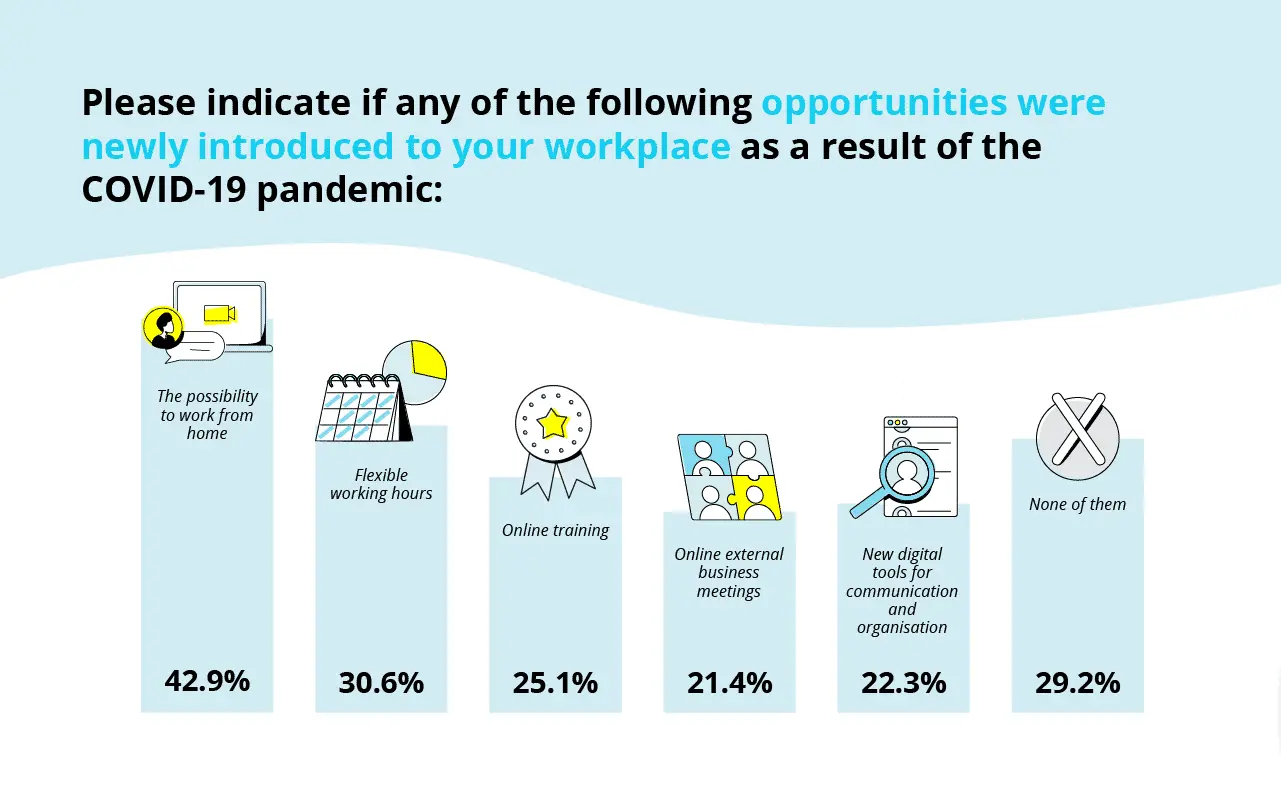
What if flexible work ended?
This question asked employees in the UK how likely they would be to resign from their current job if flexible working arrangements were revoked.
Key Findings:
Over 27% of employees would be likely or highly likely to resign if flexible working opportunities were revoked
Almost 22% of employees would be neither likely nor unlikely to resign if flexible working opportunities were revoked
Just under 33% of employees state that they would be
highly unlikely to resign
if flexible opportunities were revoked
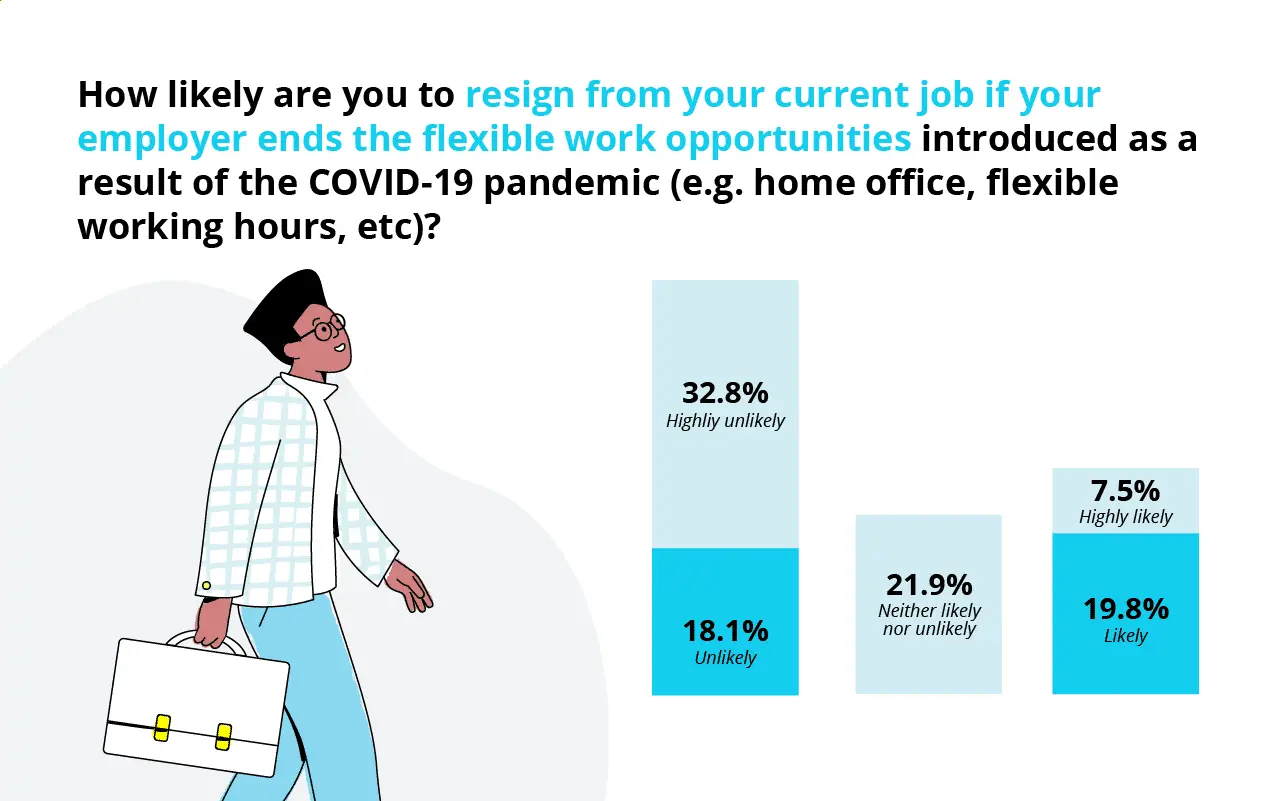
Employee Satisfaction in the UK
This question investigates employee satisfaction in the UK since the start of COVID-19, with a notable discrepancy in results between employees and HR experts. HR experts – largely responsible for facilitating remote workings – report to be far more satisfied with the new conditions in comparison to the employees they support. This indicates a clear breakdown in communication.
Key Findings:
While 12.1% of employees are either dissatisfied or highly dissatisfied with their employer, the same can be said for only 11.1% of HR professionals
The majority of employees, over 62%, are either satisfied or highly satisfied with how their employer has treated them since the start of the COVID-19 pandemic. However, the satisfaction rate among HR professionals is close to 80%.
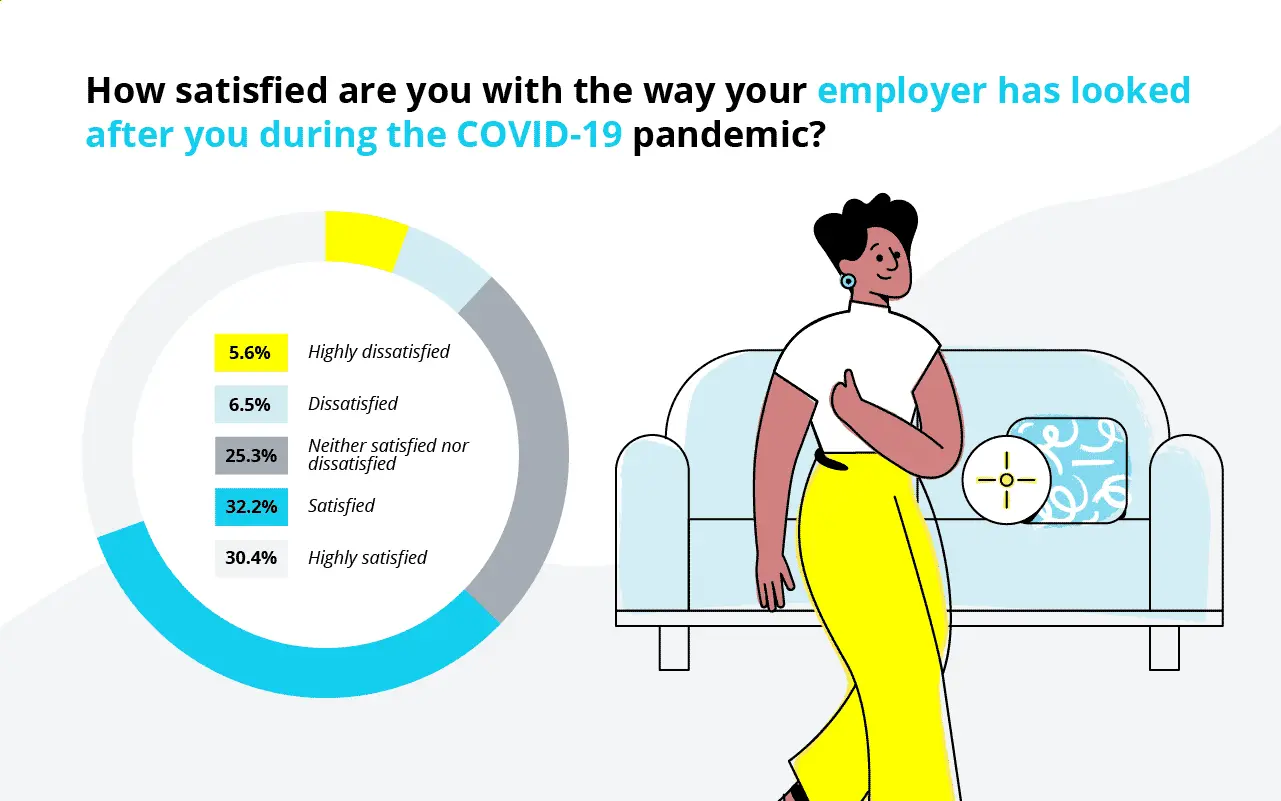
Gender Inequalities at work during the digital shift
The results from this question reveal that gender inequalities in work have been exacerbated by the digital shift, with female employees in the UK receiving less support compared to their male employees. Female employees are less likely to hold senior positions in UK firms, and are therefore less likely to be offered support that would ease the transition to remote working. In addition, female employees are more likely to be employed in front-line positions in the UK, which can’t operate online.
Key Findings:
While 38% of male employees have received training on remote work, the same can be said for only 34% of female employees
While 35% of male employees have been provided equipment to work from home, the same can be said for only 33% of female employees
Since the start of COVID-19, 47% of male employees report some form of well-being and mental health support, compared to 45% of female employees
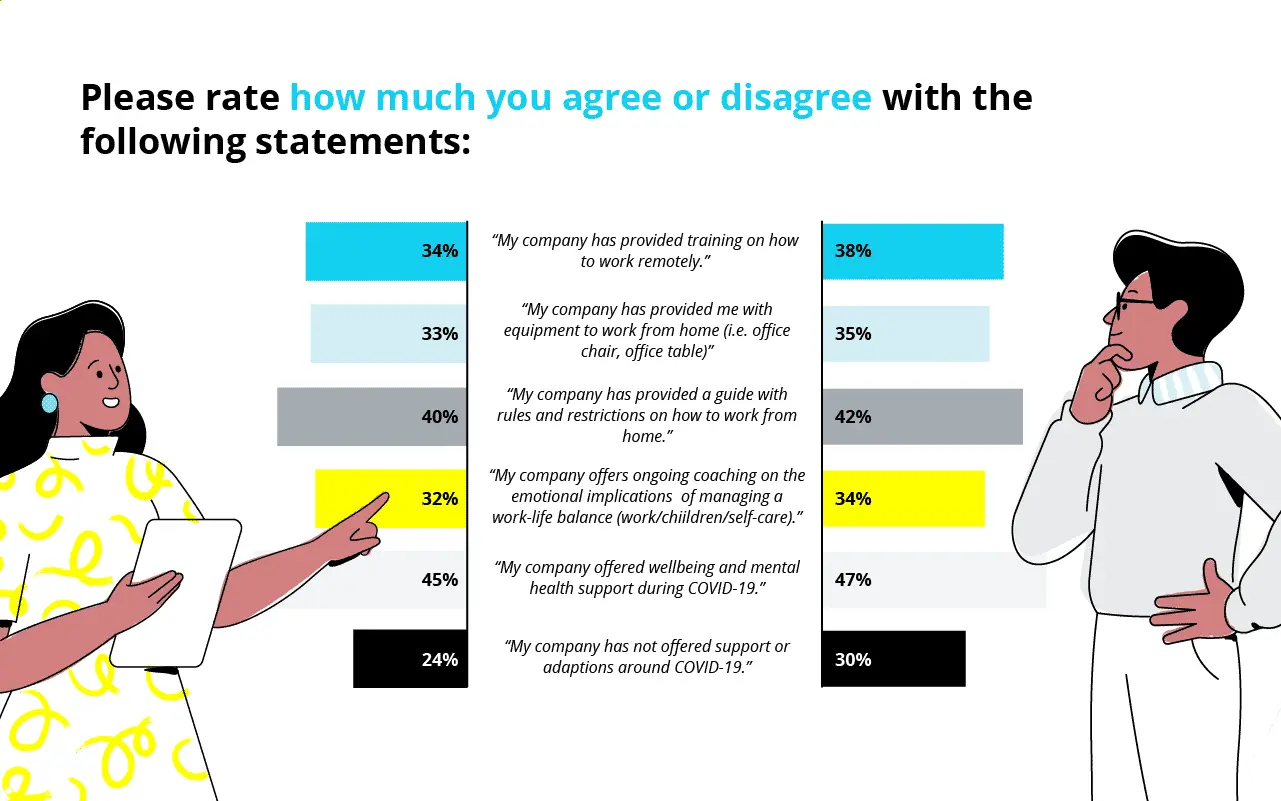
The Handling of Digitization
This question reveals attitudes towards digitalisation in UK firms from the point of view of employees.
Key Findings:
21.6% of employees report that their firms are consciously avoiding implementing digital adaptations
32.5% of employees report that their firms have started the process of implementing digital adaptations but have found that their working culture is not yet ready for a full digital shift
Over 23% of employees report that their firms have faced challenges in implementing digital adaptations
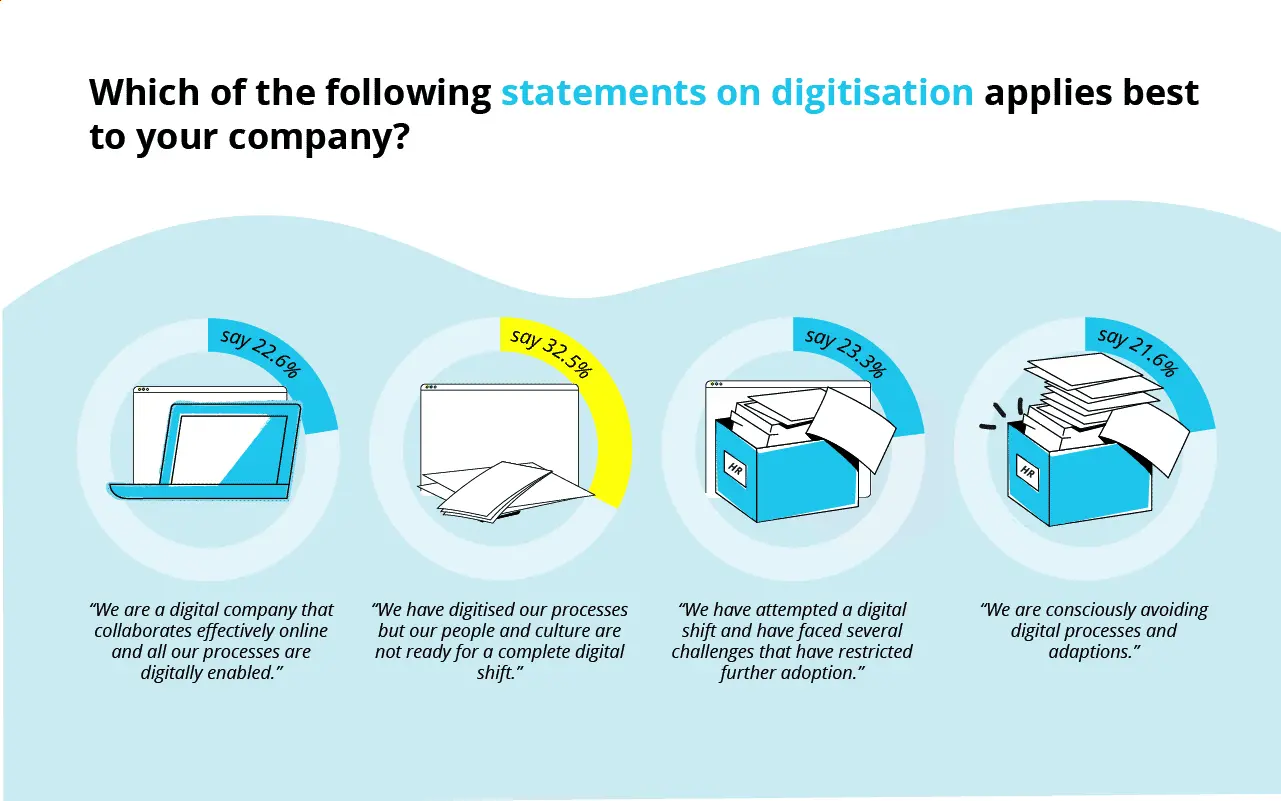
Does Home Office affect working hours?
This question aimed to uncover if working remotely impacts working hours in the UK, indicating difficulties in maintaining work-life balance.
Key Findings:
Almost 35% of employees report that remote working has not had any impact on their working hours
Just over 28% of employees report working longer hours more often now than before the COVID-19 pandemic
37% of employees report working shorter hours more often now than before the COVID-19 pandemic
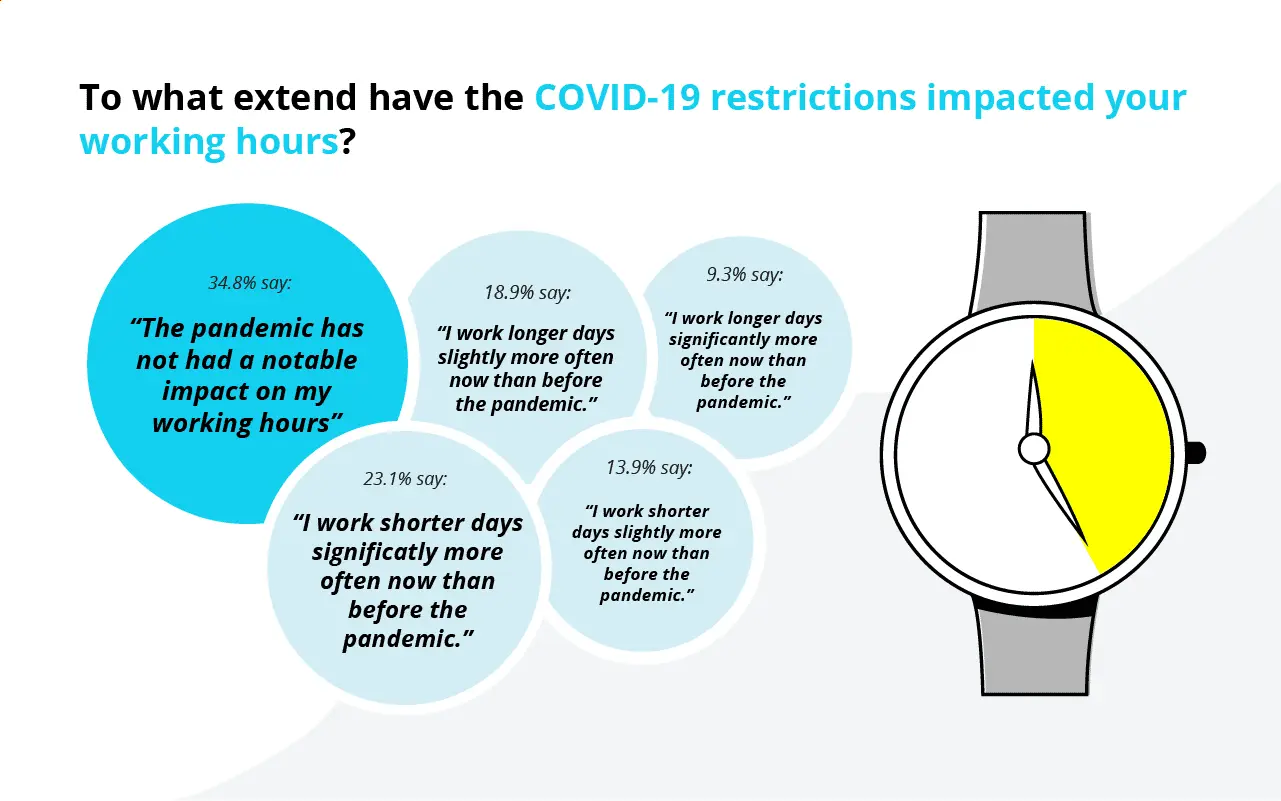
The Current Status of Hybrid Working Places
This question reveals the current status of hybrid working practises in firms across the UK. It also indicates inequalities between male and female employees in digital work – with significantly more female employees working in fields that can’t operate online.
Key Findings:
Even before the pandemic, 23.6% of male employees worked for companies that operated online, compared to 16.4% of female employees
41.6% of female employees work for firms that are avoiding hybrid working practices, compared to 33.2% of male employees
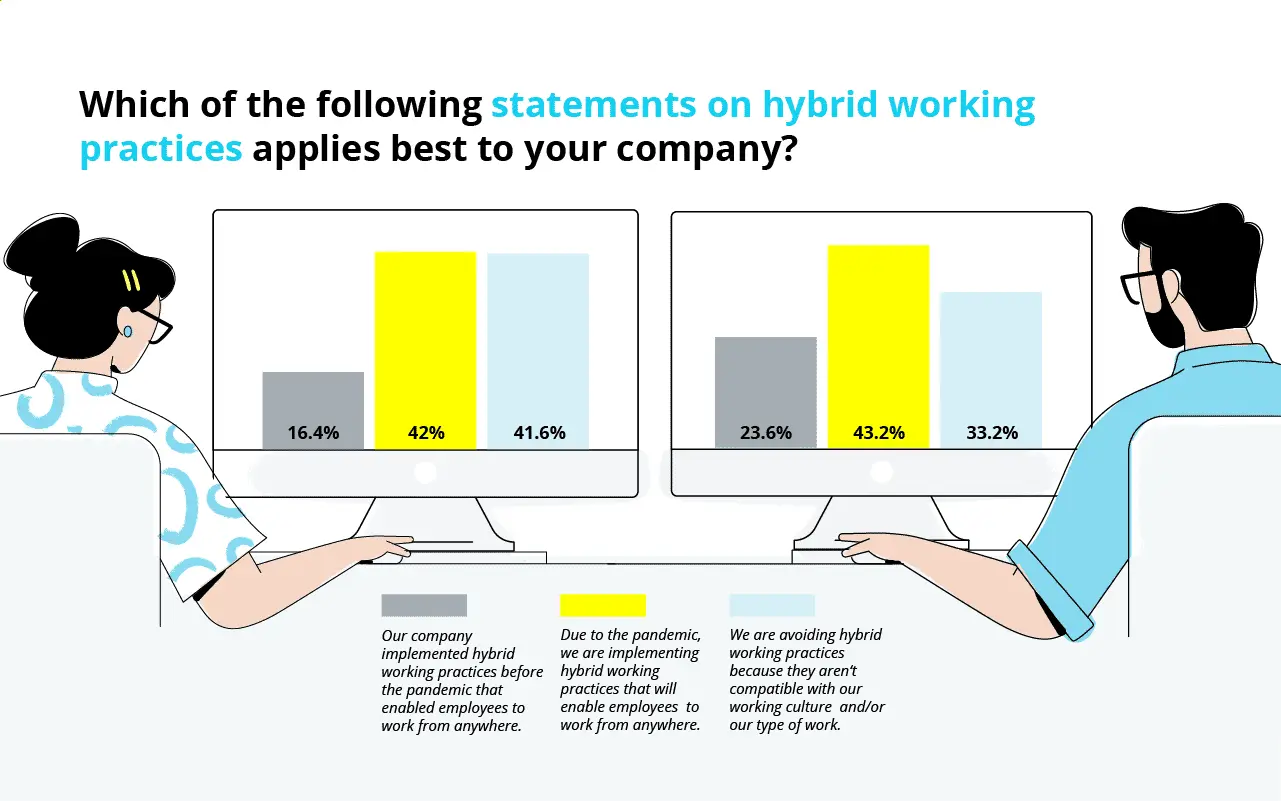
Will Flexible Work Remain after the Pandemic?
This question aimed to reveal the likelihood that UK firms would introduce flexible working arrangements permanently following the COVID-19 pandemic. Perceptions of this differed significantly between employees and HR professionals.
Key Findings:
While 32.3% of employees believe that it is unlikely or highly unlikely that their firm will introduce flexible working arrangements permanently, only 9% of HR respondents agree
While 41.4% of employees believe that it is likely or highly likely that their firm will introduce flexible working arrangements permanently, more than 59.1% of HR professionals think flexible working will be a permanent opportunity
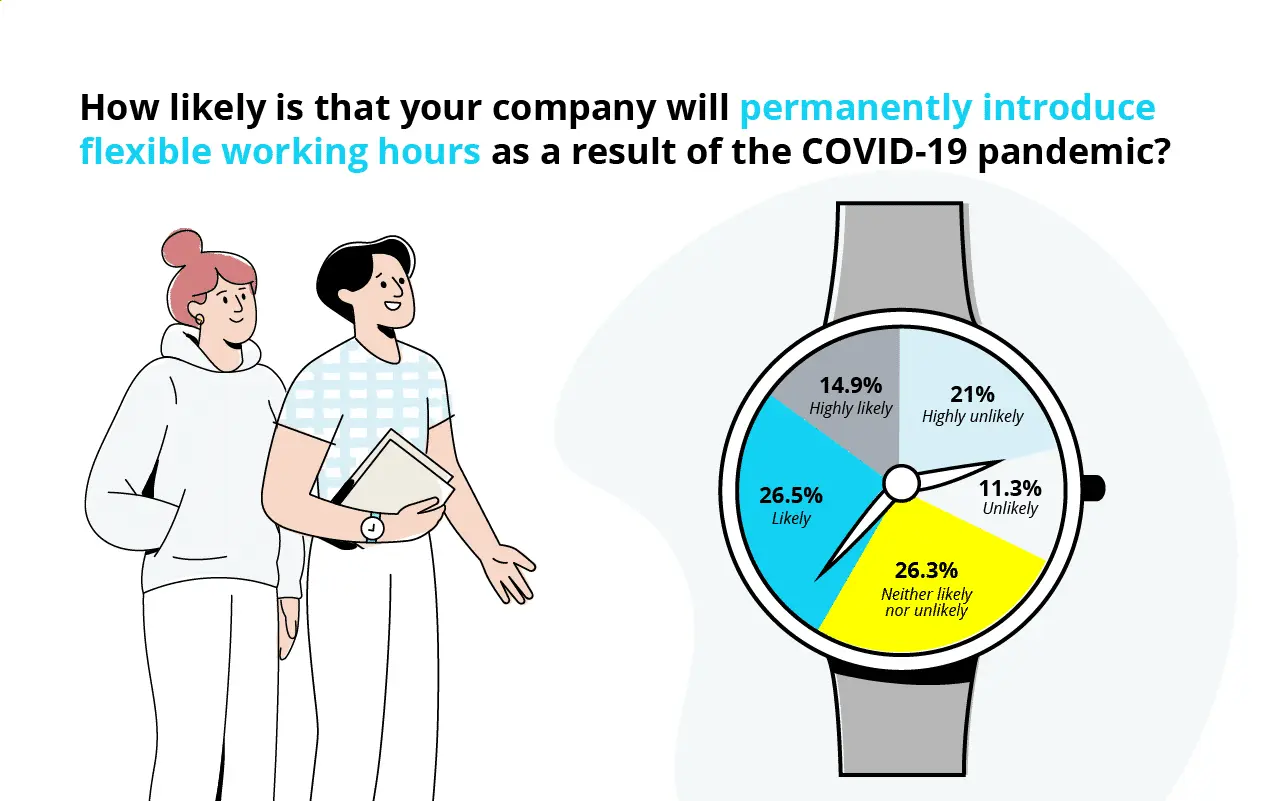
Methodology
This survey on the digitalisation of work was conducted in partnership with Appinio. In total, 1,000 employees in the UK were polled.
In addition,100 HR professionals in the UK were polled via Linkedin to allow for a comparison between answers.